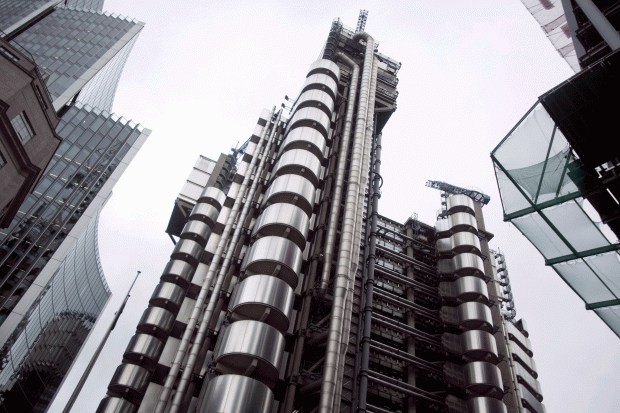
The business Brexodus is beginning and Lloyd’s of London is leading the charge.
The venerable insurance market is one of the City’s great survivors. It has come through innumerable disasters, both natural and man made, from the San Fransisco Earthquake to the 9.11 terror attacks on New York.
It has also survived economic and financial disasters and managed to emerge from one of this country’s biggest financial scandals in the late 1980s and early 1990s. That was sparked by unexpectedly large damages awards in the US linked to asbestosis. The market and its underwriting syndicates wracked up huge losses, while a can of worms about its operations was unearthed. Some very famous names who were also Lloyd’s names were bankrupted in the process.
Lloyd’s came through that bloodied but still in business. It has also seen off attempts to form rivals in US cities, and coped with an exodus to Bermuda’s (virtually) tax free insurance haven. The London part of its name was never been seriously threatened.
And then Brexit happened.
Lloyd’s has now become one of the first British businesses to firm up plans to shift at least part of its operations out of its long time home. The market has compiled shortlist of five cities that could host an EU subsidiary, which will have regulatory clearance to operate around the bloc through the “passporting” deal that allows the financial institutions of one EU country to conduct business in all the others.
Does this mean we will see Lloyd’s of Paris, or Lloyd’s of Dublin, or Lloyd’s of Frankfurt, or wherever else is on the shortlist (and I’ve no inside knowledge). Why not? If the shoe fits.
The new subsidiary will, of course, require people to be moved from London to staff it. The taxes they pay (and the taxes the subsidiary pays) and the economic contribution they make, will therefore be lost to the UK. Probably for good.
You can’t criticise the market’s managers for taking this step. Even though the project will cost the institution millions, and increase its operating costs when it’s complete, Europe accounts for 11 per cent of its turnover. Not huge, but far too big a slice of cake to give up.
If this is what Lloyd’s is doing to protect that, just imagine what other businesses that are more reliant on Europe will be doing. There are already reports that nearly half London’s sizeable corps of US bank are investigating similar moves and no wonder.
It is for this reason that talk of “transitional arrangements” to keep things ticking over, and for several years, after the UK’s exit has heated up. MPs, peers, regulators, business lobby groups, and more besides have been campaigning hard for these, amid warnings that the UK economy will tip off a cliff edge without them.
That would require co-operation from Europe, but of more immediate concern, it would also require an outbreak of common sense among the UK’s ministers.
Against that backdrop, it is disturbing that the chair of the EU financial affairs subcommittee Baroness Falkner has expressed concern that the Government has not been making it enough of a priority. “He did not seem as seized of the matter was we might have expected him to be,” she said archly of City minister Simon Kirby. It just isn’t politic, you see, to describe someone as a bloody fool.
Lloyd’s keeps saying these its plans are precautionary and that they aren’t set in stone. If the UK secures a deal that allows it to carry on more ore less as it does now, no harm done beyond a few quid spent on preparing the ground.
But here’s the thing. The BBC is reporting that the UK’s ambassador to the EU has privately advised that a free trade deal between this country and the EU could take ten years and might still fail even after the Is have been dotted and the Ts crossed because it will have to be ratified by the parliaments of each individual EU member state.
Those transitional arrangements, if they can be agreed, might have to be in place for a very long time. And it isn’t just Mr Kirby that will need to set his nose to the grindstone.
Amid the current policymaking chaos, there will come a point when businesses like Lloyd’s push the button rather than hanging around and waiting for something that might not happen.
Meanwhile, all this continues to expose the falsehood of Leave’s claims that Brexit would be cost free, and would benefit the UK economy. It won’t. The rot is only just beginning to seep into the figures. It will only be contained if those advocating a hard Brexit are put back in their box. I wouldn’t be too optimistic about that happening right now. I wouldn’t be too optimistic about anything concerning the UK economy given the quality (with the exception of Chancellor Philip Hammond) of the people with their hands on this country’s tiller.
[Source:- independent]
